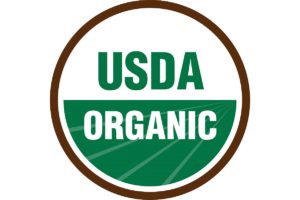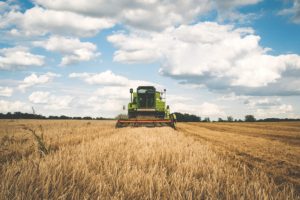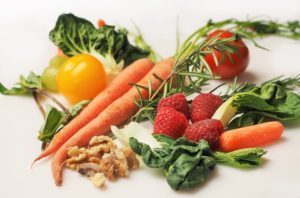 Organic vs. Conventionally-Produced Food: What’s the Difference?
Organic vs. Conventionally-Produced Food: What’s the Difference?
You have probably seen the USDA Organic seal on foods at the grocery store. In recent years, the organic market has been one of the fastest growing segments of agriculture in the US, with double-digit growth and around 22,000 certified organic operations. People choose organic foods for a variety of reasons–one of which is health. There is debate about whether organic foods are healthier or not, so let’s take a closer look.
What is organically-produced food?
‘Organic‘ is a labeling term that indicates that the food or other agricultural product has been produced through approved methods. The organic standards describe the specific requirements that must be verified by a USDA-accredited certifying agent before products can be labeled USDA organic. Overall, organic operations must demonstrate that they are protecting natural resources, conserving biodiversity, and using only approved substances.
Is organic food healthier?
At this time, there is not a clear answer to the question of whether ‘organic’ food is healthier than ‘conventional’ food–
- A couple of large review studies have concluded that the evidence does not show that organic
 foods are more nutritious:
foods are more nutritious:
- It may be that other factors, such as freshness, play a larger role in nutrient content.
- The studies noted that consuming organic foods could reduce exposure to pesticide residues and antibiotic-resistant bacteria.
- Some studies show that there is a nutritional difference:
- A study published in 2014 found a slightly higher antioxidant content in organically-grown fruits and vegetables than in conventionally-grown fruits and vegetables.
- Another study found that organic milk had more healthy omega-3 fatty acids such as EPA and DHA than did conventional milk.
 To sum it up, many experts advise that eating an overall healthy diet is more important than whether or not you choose organically-produced foods. Most Americans fall short on fruit and vegetable intake, so increasing the amount and variety of produce eaten is likely more important than whether they are organically-produced or not.
To sum it up, many experts advise that eating an overall healthy diet is more important than whether or not you choose organically-produced foods. Most Americans fall short on fruit and vegetable intake, so increasing the amount and variety of produce eaten is likely more important than whether they are organically-produced or not.


Thanks Jessica! It will be interesting to see how this research progresses. From our stand point as nutrition educators, I agree, it is good to just help people make better choices about what and how much they are eating first. But, I see how the question of “organic” or not is a concern. Thanks for educating us on the latest!
Has it ever been proven that systemic pesticides absorbed by plant roots are indeed present in the food we consume? If so, at what level?
This question goes beyond the scope of this article, and I can’t offer much detail. There are many pesticides and many foods, so we cannot make a blanket statement. While some amount of some pesticides may be absorbed by some foods, the USDA and EPA do test produce to assess this (as well as residue on the outside of the produce) and set limits to allowable (safe) amounts of residue based on their standards. These links below may provide you with more clarity. I hope that helps.
https://www.ams.usda.gov/datasets/pdp
https://www.ams.usda.gov/sites/default/files/media/PDP2015AnnualSummaryConsumers.pdf
Nice article, thank you Jessica
I do think the primary reason people want organic foods is to reduce their exposure to pesticide and antibiotic residues. How much are we able to reduce pesticide residues on produce by properly washing the food before cooking or eating raw?
I am not exactly sure by how much certain residues are reduced by washing. However, I do know that washing can reduce some types of residues but not reduce other types of residues. Additionally, washing does not address the pesticide that has been absorbed by the roots and potentially present in the tissue/flesh of the produce. Nonetheless, washing definitely helps and is always advised!